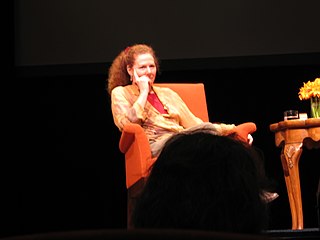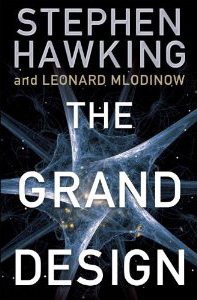Related Research Articles
An ansible is a category of fictional devices or a technology capable of near-instantaneous or faster-than-light communication. It can send and receive messages to and from a corresponding device over any distance or obstacle whatsoever with no delay, even between star-systems. As a name for such a device, the word "ansible" first appeared in a 1966 novel by Ursula K. Le Guin. Since that time, the term has been broadly used in the works of numerous science-fiction authors, across a variety of settings and continuities. A related term is ultrawave.

New Scientist is a popular science magazine covering all aspects of science and technology. Based in London, it publishes weekly English-language editions in the United Kingdom, the United States and Australia. An editorially separate organisation publishes a monthly Dutch-language edition. First published on 22 November 1956, New Scientist has been available in online form since 1996.

Colin Hiram Tudge is a British biologist, science writer and broadcaster.

A question is an utterance which serves as a request for information. Questions are sometimes distinguished from interrogatives, which are the grammatical forms, typically used to express them. Rhetorical questions, for instance, are interrogative in form but may not be considered bona fide questions, as they are not expected to be answered.
The Hitchhiker's Guide to the Galaxy is a comic science fiction series created by Douglas Adams that has become popular among fans of the genre and members of the scientific community. Phrases from it are widely recognised and often used in reference to, but outside the context of, the source material. Many writers on popular science, such as Fred Alan Wolf, Paul Davies, and Michio Kaku, have used quotations in their books to illustrate facts about cosmology or philosophy.

Philip Reeve is an English author and illustrator of children's books, primarily known for the 2001 book Mortal Engines and its sequels. His 2007 novel, Here Lies Arthur, based on the legendary King Arthur, won the Carnegie Medal.
An interrogative clause is a clause whose form is typically associated with question-like meanings. For instance, the English sentence "Is Hannah sick?" has interrogative syntax which distinguishes it from its declarative counterpart "Hannah is sick". Also, the additional question mark closing the statement assures that the reader is informed of the interrogative mood. Interrogative clauses may sometimes be embedded within a phrase, for example: "Paul knows who is sick", where the interrogative clause "who is sick" serves as complement of the embedding verb "know".

Michael Kevin Pollan is an American journalist who is a professor and the first Lewis K. Chan Arts Lecturer at Harvard University. Concurrently, he is the Knight Professor of Science and Environmental Journalism and the director of the Knight Program in Science and Environmental Journalism at the UC Berkeley Graduate School of Journalism where in 2020 he cofounded the UC Berkeley Center for the Science of Psychedelics, in which he leads the public-education program. Pollan is best known for his books that explore the socio-cultural impacts of food, such as The Botany of Desire and The Omnivore's Dilemma.

An ice spike is an ice formation, often in the shape of an inverted icicle, that projects upwards from the surface of a body of frozen water. Ice spikes created by natural processes on the surface of small bodies of frozen water have been reported for many decades, although their occurrence is quite rare. A mechanism for their formation, now known as the Bally–Dorsey model, was proposed in the early 20th century but this was not tested in the laboratory for many years. In recent years a number of photographs of natural ice spikes have appeared on the Internet as well as methods of producing them artificially by freezing distilled water in domestic refrigerators or freezers. This has allowed a small number of scientists to test the hypothesis in a laboratory setting and, although the experiments appear to confirm the validity of the Bally–Dorsey model, they have raised further questions about how natural ice spikes form, and more work remains to be done before the phenomenon is fully understood. Natural ice spikes can grow into shapes other than a classic spike shape, and have been variously reported as ice candles, ice towers or ice vases as there is no standard nomenclature for these other forms. One particularly unusual form takes the shape of an inverted pyramid.

John R. Gribbin is a British science writer, an astrophysicist, and a visiting fellow in astronomy at the University of Sussex. His writings include quantum physics, human evolution, climate change, global warming, the origins of the universe, and biographies of famous scientists. He also writes science fiction.

Wendy Lesser is an American critic, writer, and editor based in Berkeley, California. She is the founding editor of the arts journal The Threepenny Review, and the author of a novel and several works of nonfiction, including most recently a biography of the architect Louis Kahn, for which she won the 2017 Marfield Prize.

Anita Nair is an Indian novelist who writes her books in English. She is best known for her novels A Better Man, Mistress, and Lessons in Forgetting. She has also written poetry, essays, short stories, crime fiction, historical fiction, romance, and children's literature, including Muezza and Baby Jaan: Stories from the Quran.

What Is Your Dangerous Idea?: Today's Leading Thinkers on the Unthinkable is a book edited by John Brockman, which deals with "dangerous" ideas, or ideas that some people would react to in ways that suggest a disruption of morality and ethics. Scientists, philosophers, artists, and various other groups of people have written in to the online salon called the Edge, where thinkers in several areas post and discuss their ideas. This collection of responses forms the entirety of the book. The basic concept behind the book is "to gather a hundred of the most brilliant minds in the world in a room, lock them in, and have them ask each other the questions they were asking themselves".

David John Eicher is an American editor, writer, and popularizer of astronomy and space. He has been editor-in-chief of Astronomy magazine since 2002. He is author, coauthor, or editor of 23 books on science and American history and is known for having founded a magazine on astronomical observing, Deep Sky Monthly, when he was a 15-year-old high school student.
In linguistics, an echo answer or echo response is a way of answering a polar question without using words for yes and no. The verb used in the question is simply echoed in the answer, negated if the answer has a negative truth-value. For example:
Caleb Asa Scharf is a British-American astronomer and popular science author. He is currently the senior scientist for astrobiology at the NASA Ames Research Center in Mountain View, California. He formerly served as the director of the multidisciplinary Columbia Astrobiology Center at Columbia University, New York.

The Grand Design is a popular-science book written by physicists Stephen Hawking and Leonard Mlodinow and published by Bantam Books in 2010. The book examines the history of scientific knowledge about the universe and explains eleven-dimensional M-theory. The authors of the book point out that a Unified Field Theory may not exist.

You Are the Universe: Discovering Your Cosmic Self and Why It Matters is a philosophy book co-written by Deepak Chopra and Menas Kafatos. The book delves into questions pertaining to existence, human existence, consciousness, reality and perception. It was published on February 7, 2017, and became a New York Times best-seller.

Brief Answers to the Big Questions is a popular science book written by physicist Stephen Hawking, and published by Hodder & Stoughton (hardcover) and Bantam Books (paperback) on 16 October 2018. The book examines some of the universe's greatest mysteries, and promotes the view that science is very important in helping to solve problems on planet Earth. The publisher describes the book as "a selection of [Hawking's] most profound, accessible, and timely reflections from his personal archive", and is based on, according to a book reviewer, "half a million or so words" from his essays, lectures and keynote speeches.
Nicholas Pyenson is a paleontologist and the curator of fossil marine mammals at the Smithsonian Institution’s National Museum of Natural History in Washington, DC. He is the author of numerous popular science works including the book Spying on Whales: The Past, Present, and Future of Earth's Most Awesome Creatures.